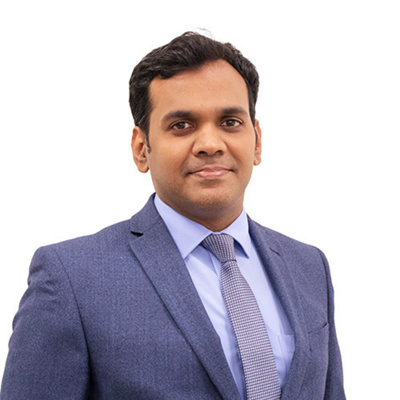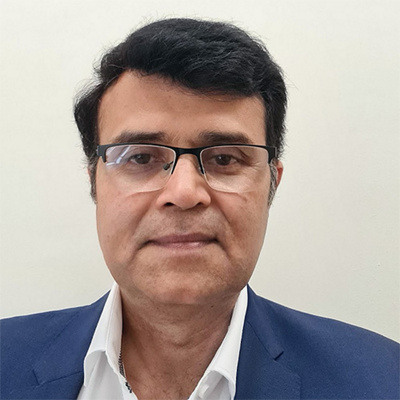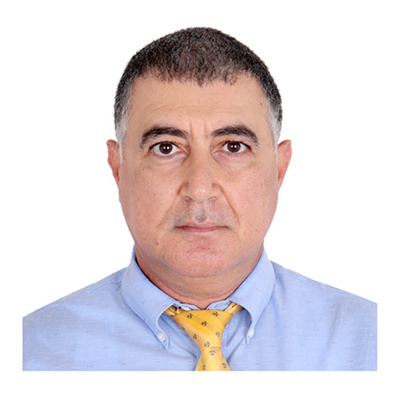Gastrointestinal cancers affect any organ that extends from the mouth to the anus, which is approximately nine metres in length and includes the oesophagus, stomach, small and large intestines, colon, rectum, liver and pancreas. Multidisciplinary Team Approach.
Regardless of which type of cancer is affecting the GI tract, at Mediclinic a multidisciplinary team of over two dozen consultants (including a surgeon, gastroenterologist, radiologist and oncologist) will study all cases and offer a tailored plan that is suitable for the patient. This team meets every week to discuss new diagnosis and also post treatment results and their follow ups, and the results are audited regularly to meet the international standards.
OESOPHAGEAL CANCER
Oesophageal cancer occurs when malignant cells grow in the oesophagus (food pipe or gullet), the tube through which food runs from the throat to the stomach. Oesophageal cancer may occur in any part of the oesophagus and at its junction with the stomach. There are different cell types of oesophageal and stomach cancer.
Symptoms may include:
- Difficulty swallowing
- Coughing or hoarseness
- Worsening indigestion or heartburn
- Vomiting
- Choking on food
- Unexplained weight loss
- Pain in the throat and behind the breastbone
Causes and risk factors may include:
- Smoking
- Chronic reflux
- Barrett’s oesophagus (30 to 125 fold increased risk of developing oesophageal cancer)
- Obesity
- Unhealthy diets
- Excessive alcohol consumption
- Drinking very hot liquids regularly
Diagnosis
This is established with the help of an endoscopy (passing a camera down the mouth into the oesophagus and stomach) and biopsies. This takes about 10 minutes and is done under sedation. Investigations like CT scan, PET scan, endoscopic ultra sound (EUS), and diagnostic laparoscopy help in staging the oesophageal cancer. This is needed to help us plan the treatment.
Treatment
Treatment protocols vary and depend on the stage of the cancer and patient’s general health and comorbidities. Our multidisciplinary team studies all cases and offers a tailored plan that is suitable for the patient. The treatment is complex and spans a few months. If operable, the treatment may include oesophago-gastrectomy (removing most of the oesophagus and top of the stomach) with or without chemotherapy, depending on the cancer staging. At Mediclinic Parkview Hospital we offer the full range of oesophageal cancer management from diagnosis to treatment (surgery and oncology). Long term follow-up is also arranged at the clinic.
STOMACH CANCER
The stomach is an organ in the upper GI tract that receives food from the oesophagus and then helps break it down and pass it to the small bowel. The stomach can be the source of wide variety of tumours including GIST (gastro intestinal stromal tumours), NET (neuro endocrine tumours), and adenocarcinomas (cancers). They are caused by the growth of abnormal cells in the stomach and can affect any part of the stomach. Prognosis depends on the nature and stage of the tumour.
Symptoms may include:
- Difficulty swallowing
- Abdominal pain
- Nausea
- Heartburn and indigestion
- Vomiting
- Unexplained weight loss
- Feeling bloated
Causes and risk factors for cancers may include:
- Obesity
- Sedentary lifestyle
- Consuming foods high in salt and smoked food
- Diet low in fruits and vegetables
- Smoking
Diagnosis:
This is established with the help of an endoscopy (passing a tube down the mouth into the oesophagus, stomach and upper small bowel) and taking biopsies. This takes about 10 minutes and is done under sedation. CT scan, endoscopic ultra sound (EUS) and diagnostic laparoscopy (key hole surgery) help in staging the gastric cancer or the other lesions before planning the treatment. Speak to your physician who will guide you.
Treatment:
The treatment of the cancer will be dependent on various factors, primarily on the location and stage of the cancer, patient’s general health and comorbidities. If the cancer is operable, the treatment may include surgery (partial or total gastrectomy) with or without chemotherapy, and targeted drug therapy, depending on the cancer staging. If the cancer is not operable, treatment is chemotherapy which is organised by our oncologist.
GIST and NET are usually benign but have malignant potential. They can usually be treated by surgical excision (removing part of the stomach). Occasionally they may need chemotherapy.
Our multidisciplinary team studies all cases and offers a tailored plan that is suitable for the patient. The journey is complex and spans over a few weeks. At Mediclinic Parkview Hospital we offer the full range of management from diagnosis to treatment (surgery and oncology) for gastric cancer and other tumours. Long term follow-up is also arranged at the clinic.
COLORECTAL CANCER (CRC)
Colorectal cancer (CRC) is a malignant tumour that grows in the colon or the rectum. Most colorectal cancer starts with the growth of polyps in the lining of the colon. Not all polyps may develop into colorectal cancer; the type that may develop into cancer may take 10 to 15 years to develop into colorectal cancer. Therefore, regular screening is vital for early detection of polyps which can be removed via a colonoscopy procedure before they have the chance to turn into colorectal cancer.
Lifestyle changes and prevention:
- To decrease your risk of developing colon cancer consider the following:
- Maintain a healthy weight
- Stay active on most days of the week
- Consume a healthy diet rich in fruits, vegetables and whole grains
- Reduce the consumption of red meat and processed meat
- Limit your alcohol intake and smoking
Most polyps cause no symptoms, but symptoms associated with colorectal cancer may include:
- Bleeding in the rectum/blood in the stool
- A change in bowel habits/narrow stools
- Cramps and discomfort in the abdomen
- Anaemia
- Fatigue
- Feeling that your bowel is not empty
- Unexplained weight loss
Screening:
There are several tests that can help diagnose colorectal cancer including a colonoscopy procedure and a test that looks for blood in the stool. The UAE’s Ministry of Health recommends bowel cancer screening from the age of 40 years, with a stool test for blood traces in stools and/or colonoscopy.
Treatment:
Treatment protocols vary and depend on the stage of the cancer. Our multidisciplinary team studies all cases and offers a tailored plan that is suitable for the patient. The primary treatment remains surgery, which involves removal of part of the affected colon or the rectum, using the most advanced minimally invasive techniques like single port or multi-port laparoscopic approach and robotic assisted approach. We follow the enhanced recovery protocol which means most of our patients are discharged three to four days after surgery.
Some patients require chemotherapy and some rectal cancers will benefit from combined chemotherapy-radiation therapy, which is offered by our oncologists as per the most up-to-date protocols. Many of our patients achieve a complete cure from the cancer following these protocols. Long term follow ups are also arranged using a joint approach though the MDT.
LIVER CANCER
The liver is a very important organ that manages many tasks including the filtering of blood that flows from the intestine, processing and storing nutrients that the intestines absorb, and producing bile which is used to digest fat, among other functions.
There are two different types of liver cancer. Primary cancer is cancer that starts in the liver and secondary cancer is cancer that spreads into the liver from another part of the body.
Symptoms may include:
- Abdominal pain
- Jaundice
- Loss of weight or appetite
- Abnormal liver function tests
- Fatty liver on ultrasound scan
- Mass in the liver or pancreas seen on ultrasound or CT/MRI scan
- Diagnosis of cancer in the GI tract or liver
Diagnosis:
There are various tests used to diagnose liver cancer. These include blood tests to determine the liver function and detect any tumour markers, ultrasound, CT and MRI to locate the tumour.
Treatment:
Treatment protocols vary and depend on the stage of the cancer. A multidisciplinary team will study all cases and offer a tailored plan that is suitable for every patient.
PANCREATIC CANCER
The pancreas is one of the digestive organs in the body and is located behind the stomach. It produces digestive juices called enzymes that help break down starch, sugar and fat. The pancreas also produces hormones that help regulate blood sugar levels, appetite and stimulates stomach acids.
Causes and risk factors:
- Smoking
- Excessive alcohol consumption
- Chronic inflammation of the pancreas
- Overweight
- Family history
Symptoms may include:
- Loss of appetite
- Unexplained weight loss
- Nausea
- Diarrhoea
- Fatigue
- Pain around the upper abdomen.
- jaundice may occur making the skin and eyes appear yellow
Diagnosis of pancreatic cancer:
A range of medical imaging procedures are used to diagnose pancreatic cancer.
Treatment:
Treatment depends on the cancer stage and how far the cancer progressed it may involve surgery, chemotherapy and radiotherapy.








